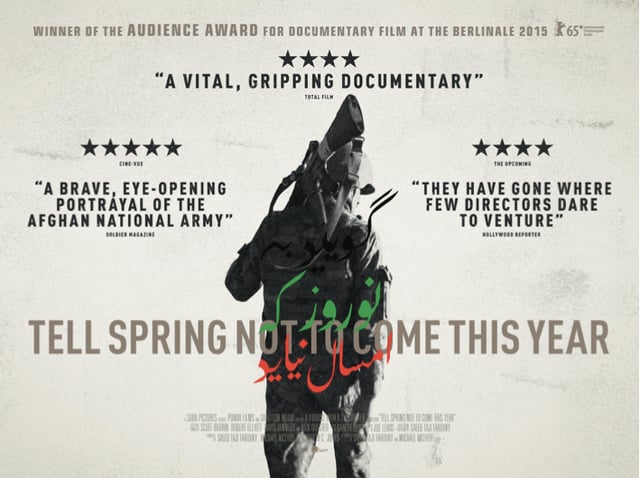How does offshore money work?
In a fascinating lecture at the London School of Economics Dr. Gabriel Zucman, the author of The Hidden Wealth of Nations: The Scourge of Tax Havens, describes how offshore shell companies disingenuously operate to remove money tax free from national economies.
Behind the Taliban's resurgence in Afghanistan
So how are things going in Afghanistan? Well... The "Taliban now holds more territory than in any year since 2001," according to data from Western and Afghan officials cited in a recent Washington Post report.
And it looks like things are going to get a lot worse.
Data: Mapping the closure of community courts in the UK
In October the Ministry of Justice announced it had finalized a list of community courts that it plans to close.
Another way of looking at it, though, is to map out and visualize exactly what the closures would look like. So I compiled the data from publicly available records in a spreadsheet and popped it into Google Maps.
Monocle Radio - Who will form Justin Trudeau's Cabinet?
Photo/Makaristos
Before heading off to all the world meetings he's got coming up, Canada's new Prime Minister must attend to that ever important matter of his front bench Cabinet, not to mention being sworn in.
Those front bench Minister will, after all, be the ones playing important supporting rolls as his mandate gets off to a running start. So who will it be?
Monocle Radio - Justin Trudeau elected PM in Canada: what challenges will he face?
2008 Trudeau promotional photo by Jean-Marc Carisse
On October 19 Justin Trudeau — the son of legendary Canadian Prime Minister Pierre Trudeau — was elected to the country's highest office.
His election comes after 10 years of two Conservative minority governments and one majority. The country's domestic programs have changed extensively during that time, beginning with the scrapping of the long-form census, long-gun registry, and environmental protections for small lakes and rivers.
Assange calls for leak of CIA torture report as new cloud technology endangers whistleblowers
A protestor's sign outside the Ecuadorian embassy in London. Credit: Graham Lanktree
After a four-year hiatus WikiLeaks has plans to resurrect its controversial “most wanted list.” Its aim is to coax whistleblowers to expose specific government secrets, and first up the group wants the unreleased text of the CIA torture report and leaks from spy agencies around the world.
But new cloud server security could make it much more difficult and dangerous for Julian Assange’s potential sources to come forward.
That list “got me in a lot of trouble,” Assange said when we spoke about his new book inside the Ecuadorian embassy in London late last year. Dormant since 2009, its appeal for secret Iraq War documents was used as evidence to convict WikiLeaks’ source Pfc. Chelsea Manning in 2013. And it prompted an ongoing investigation of whether Assange engaged in a conspiracy to commit espionage.
Privacy ‘not an absolute right,’ says former UK spy boss
An aerial image of the Government Communications Headquarters (GCHQ) in Cheltenham, Gloucestershire. Credit: Ministry of Defence
Widespread encryption and stopping bulk collection of communications data will cripple intelligence agencies, says a former top UK spy.
“Everything can’t be private or we’ll end up regretting it,” said Sir David Omand, director of the UK’s signals intelligence agency GCHQ from 1996-97, speaking at University College London January 15.
“Very serious damage” will be done to the ability to carry out foreign espionage and police domestically if “you have the right to have your private iChat and nobody has the right to intercept it,” Omand, now a visiting professor of war studies at King’s College London, added.
UK’s laws for foreign fighters returning from Syria need nuance
(l-r) Shiraz Maher, Moazzam Begg and Richard Barrett
Hundreds of young Britons who went to battle Syria's oppressive regime alongside rebel groups on the wings of the Arab Spring are now running for their lives from IS.
Yet they find themselves between a rock and a hard place with pending UK laws that bar them from returning to Britain for two years and would have them put on trial and imprisoned for terrorism if they return.
At the Frontline Club January 14, Shiraz Maher, a senior research fellow at the International Centre for the Study of Radicalisation and Political Violence (ISCR) at King’s College; Moazzam Begg a former Guantánamo Bay prisoner turned activist with the UK group Cage; and former MI6 director of global counter-terrorism Richard Barrett, now a senior VP with strategic security intelligence consultants The Soufan Group; discussed how an understanding of returning fighters motivations should inform the government’s response in both new laws and de-radicalization programs.
How can news outlets protect freelancers in war zones?
Frontline Club founder Vaughan Smith chats with Ben De Pear of Channel, 4, Marcus Mabry of The New York Times, freelancer Emma Beals, and AFP’s David Williams.
As many major news organisations close foreign bureaus, freelancers are called on more and more to cover global conflicts. They face risks often without the structure, training and resources that come with having a large media outlet behind you.
Continuing a conversation that began at the end of October in New York at the Overseas Press Club of America (OPC), Vaughan Smith, founder of the Frontline Club, spoke with leading editors at the club in London on Tuesday 18 November. They discussed the importance of pay to reflect risk, training, and new ways of determining how much responsibility for freelancers news outlets should take on.







